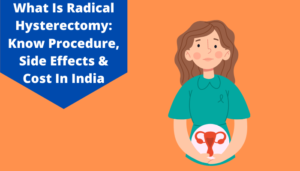Top Group Health Insurance Policies Online in India
Group Health Insurance
In India, one of the most common types of insurance is group health insurance. Group health insurance is a type of insurance that provides coverage to a group of people; normally bound by a common goal. Most commonly, employers buy group insurance plans for their employees. Employees are a crucial part of organizations. Group insurance is a key factor for companies in attracting, retaining, and ensuring a workplace with healthy employees. When employees feel protected and cared for, they become commitment to their organizations. This also adds to their efficiency and loyalty levels.
Group health insurance is a type of health insurance under which is taken for a group of people with all being insured under one umbrella policy. A formal group can avail of this type of insurance. Insurance companies typically provide group health insurance plans to organizations for their employees, but clubs and other associations also offer group insurance to their members.
Group health insurance forms a part of the overall benefits package that employers offer to their employees. Just like individual health insurance plans, group plans cover the employees and normally covers their family members also. A single policy is issued to the organization in group health insurance and the employees get individual medical-claim numbers to facilitate claims processing. It is the employer and not the policyholders who avails the tax benefits.
Advantages of a Group Health Insurance Policy
Group Mediclaim policy has many benefits to the employer and the employee. Group insurance plans spread out risks to a group of people as opposed to a single person. This results in many benefits.
Let us first look at how it benefits the employers
Helps in employee retention
Employees are a company’s biggest asset. Many industries like the IT industry are exposed to the risk of high attrition due to competition in the job market. Hiring and training employees is a considerable cost to the company; hence, companies need to retain good employees. One way to ensure employees stay in the company for a longer period of time is through employment perks. Group insurance for employees is one of the best perks that help in employee retention.
Employees who avail health insurance from employers feel cared for, protected, and are free of financial stress related to medical costs. The employees’ immediate family is often insured under the group health policy, making it even more beneficial for the employee, ensuring employee loyalty to the company.
Tax benefits
In group health insurance, the company or the employer pays the premium, and hence, the tax benefit goes to the employer, not the policyholder. The employees under the group health plan are not entitled to any tax deductions under Section 80D or any other section of the Income Tax Act. The employees can claim medical expenses but not tax exemption. The tax benefits can be availed by the company paying the premium as this is treated as an admissible expense in the P&L account for tax calculation purposes.
Keeps employees motivated
Employees are motivated to perform better and stay with a company when they feel cared for by the company. This improves their performance, benefiting the company as a whole. Group health insurance is one such perk that keeps employees happy. Moreover, group Mediclaim relieves employees from the worries of medical expenses. Studies show that happy employees perform better than employees who are not satisfied or stressed. Organizations can have high-performing and motivated employees by providing perks like health insurance.
Better benefits at lower costs
Group health insurance is more cost-effective compared to individual health insurance plans. Moreover, health insurance features under group health insurance are far better than individual health plans. For organizations, this means that they can provide better benefits to their employees at lower costs.
Why protect your employees’ health with group health insurance?
Most people know that health insurance is helpful and essential, but few end up buying personal health insurance plans. Group health insurance provided by employers helps secure a large number of people into the health insurance habit.
Advantages to employees
Pre-existing diseases covered from day 1:
Group Mediclaim insurance doesn’t require the employee to go for a pre-policy health check-up. Unlike personal health insurance plans with a waiting period or do not cover pre-existing diseases, group health insurance plans offer coverage for pre-existing illnesses from day 1.
Extensive range of coverage:
Group health insurance plans offer coverage for a wide range of diseases as it is meant for members of all age groups. Also, there is no medical test formality involved here.
Coverage for the immediate family:
Group health insurance plans offer coverage for the immediate family members – spouse, children, and parents – of employees under the same policy. This means that the employees need not purchase an individual health plan for their family members.
Key features & benefits of Group Health Insurance policy
Coverage for spouse, children and dependent parents:
Most group health insurance plans offer coverage for the immediate family members – spouse, children and parents – of employees under the same policy under the floater limit.
Pre-existing illness:
Group Mediclaim insurance doesn’t require the employee to go for a pre-policy health check-up.
Maternity cover:
Many group health insurance plans offer maternity coverage as an add-on. This feature is helpful to employees as the costs of normal and C-Section deliveries have gone up sharply in the last few years.
Cashless hospitalization:
Group health insurance policyholders can avail of cashless hospitalization at a hospital insurance policy network.
Ancillary charges covered:
Ancillary charges, those costs that are otherwise not covered in treatment expenses, are covered under group health insurance plans.
Easy claim reimbursement process:
Group Mediclaim plans provide an easy claim reimbursement process to the policyholders.
Why Group Health Insurance
Group health insurance has many benefits when compared to personal health insurance plans.
Wide coverage & better benefits:
Group health insurance plans offer more expansive coverage and better benefits to policyholders than individual health insurance plans. The benefits include pre-existing illness coverage, cover for family members and more.
Customize cover:
Group health insurance policies offer customizing coverage based on the members of the group. Employers can choose different types of coverage for different sets of groups of employees.
Affordable premiums:
The premium of group health insurance plans is more affordable than individual health insurance plans as a large group of members is covered under one single plan. This makes it more economical and that is passed on to the customer. Also companies have more bargaining power with the insurers.
Critical illness coverage:
Group health insurance plans provide coverage for critical illnesses. In many cases, critical illness coverage can be bought as an add-on facility as well.
Post hospitalization benefits:
Group health insurance policies take into consideration expenses related to post-hospitalization. These may include ambulance rent, doctor consultation, diagnostic tests, and more.
Refill sum insured:
In group health plans, every member can avail of coverage for an equal sum insured. When claims are made, the insurance company refills the sum insured. This ensures that members can avail of the pre-defined sum insured at all times.
Inclusions & Exclusion
Inclusions
Pre-existing disease covered:
Pre-existing conditions are covered in group health insurance. Employees do not require a pre-policy medical check-up. Some group plans may have a waiting period for pre-existing illnesses.
Maternity cover:
Maternity cover is included in group health insurance plans as add-on coverage. This feature is beneficial for members who are planning to start a family.
Ambulance charges:
Patients may require an ambulance for commuting to and from the hospital. Group health insurance policies cover ambulance charges as well.
Pre and Post hospitalization charges:
Group Mediclaim insurance plans cover pre and post-hospitalization costs in addition to hospitalization costs. These include doctor’s visits, ambulance charges, and diagnostic tests, among others.
Domiciliary:
Domiciliary expenses are those that patients incur towards treatments taken at home post-hospitalization. Group health insurance plans offer coverage for domiciliary expenses.
Day-care expenses:
Often, patients may not require to get hospitalized because the treatment can be completed within a few hours or 24 hours. Group Mediclaim insurance policies offer coverage for day-care expenses.
Other charges:
Group health insurance offers comprehensive coverage for a wide range of medical expenses such as anaesthesia, blood, medicine, drugs, and diagnosis, among others.
Additional cover:
Group health insurance also offers coverage for treatments related to critical illnesses such as radiotherapy, chemotherapy, pacemaker installation and more.
Exclusions
Some policies do not cover parents:
Some group health insurance plans do not offer coverage for the policyholder’s dependent parents. In such cases, the policyholder should buy a family floater plan or a personal health insurance cover for the parents.
Non-allopathic treatments:
While some health insurance plans offer non-allopathic and alternative treatments, many group health plans do not include non-allopathic treatments.
Lifelong coverage:
Group health insurance is valid only until the employee is a part of the organization. Once the employee leaves the company, the group insurance policy is no longer valid.
Congenital diseases:
Usually, health insurance plans do not include hereditary diseases that occur in the body’s visible and external parts.
Health condition due to alcohol or drugs:
Group health insurance plans do not offer coverage for illnesses or injuries caused due to intake of alcohol or due to drug abuse.
Group Health Insurance Claim Procedure
Contact the health insurance company:
It is advisable to contact the health insurance company as early as possible. The insurer would be able to guide the claim process or share any other specific details.
Fill the claim form:
Once the treatment is done, the policyholder must get in touch with the insurer to get the claim form. The claim form should be filled correctly without any mistakes. If filled incorrectly, it is possible that the claim could be rejected.
Annex required documents:
Once the form is filled, the group health insurance policyholder should attach all the required documents. Usually, insurers request these documents: doctor’s prescription, medical and hospitalization bills with a breakup, police report in case of an accident, discharge summary, and other important documents. A photocopy of your office identity card with your employee number and the insurance card should also be enclosed.
Submit claim documents:
The group Mediclaim policyholder must submit all the required documents to the insurance company within the specified time.
Documents required for making a claim
Claim form:
The insurance company gives the claim form. The policyholder is required to fill in the claim form correctly. Any incorrect information or discrepancy in the claim form could lead to the rejection of the claim.
Investigation report:
The group health insurance policyholder must submit the investigation report of the hospitalization and treatment. This report contains all the essential details that serve as proof of the policyholder’s treatment.
Doctor’s prescription:
The doctor’s prescription is required because the insurance company covers the medical expenses needed and prescribed by a medical expert.
Medical report:
Medical reports are detailed reports of the patient’s treatment. The group insurance plan holder must submit copies of all medical information to help the insurer assess the claims.
Final hospital bill:
The group health policyholder must submit the final hospital bill along with the breakup. This helps the insurer assess the claims that can be covered and those not a part of the policy.
In case of accidents:
If the group health insurance policyholder is hospitalized due to an accident, the insurer will request a police report, including copy of the FIR filed.
Discharge summary:
The discharge summary provides detailed information about the sequence of the treatment. This helps insurers assess the claims.
Benefits of buying a Group Insurance policy through IIFL
Compare plans before purchase
Easy premium calculation
Get all the essential details in one place
Assistance in buying and claim process
Easy and single point of contact
Customized options based on unique requirements
Digital, fast and easy process
Selection of best plans to align with unique customer requirements
Why choose IIFL?
Most preferred insurance marketplace by customers
IIFL has earned customer recognition and loyalty with years of experience and expertise serving insurance needs of customers, thinking more like an advisor and acting to give the best possible solution to the client.
Easy process, less Terms and Conditions
IIFL understands customers’ challenges. Everything is kept clear and transparent; no jargons, no hidden clauses and no hidden costs.
Digital, fast and easy
All our processes are digital, fast and easy for customers to handle. Moreover, we provide excellent customer service to address all our customers’ needs.
How does Group Health Insurance Plan work?
A group health insurance plan is designed to offer coverage to a group of people under a single umbrella policy. All the members in the group are insured for equal sum assured. Each member is eligible to claim the sum insured. If the sum insured gets claimed by one member, the insurance company refills the sum insured. Group health insurance plans are an easy, affordable, and more beneficial way of providing health benefits to a group of people, even while keeping the employees motivated.
How is Group Plan different from Individual Plan?
Individual Health Insurance
Provides coverage for a single person
The individual policyholder bears the premium cost
Personal health plans have to be bought by the individual personally
Personal health plans have to be renewed every year or as per the specified clause
Policyholders receive no-claim bonus
The policyholder can avail of tax benefits
Pre-policy medical test is a must
Customization of the policy is based on the individual policyholder
Group Health Insurance
Provides coverage to a group of people
The organization/employer bears the premium cost
Employees automatically receive group health insurance when they join a company
Employees continue to be covered under the policy until they are employed with the organization.
Policyholders do not receive no-claim bonus
The policyholder cannot receive any tax benefits.
The employer or the organization receives tax benefits
Pre-policy medical test may not be required
Customization of the policy is based on the organization or the employer
Types of Best Health Insurance Plans in India
FAQ
Q. What is Group Health Insurance?
A. Group health insurance is a type of medical insurance plan that is provided to a group of members sharing common interests. Typically, group plans are given by employers to employees. Group Mediclaim forms a part of the overall benefits package an employer offers to employees. Group plans also provide coverage to the dependents of the employees. In group insurance plans, the risks are spread across the members of the group. They may belong to different age brackets. This enables an affordable, cost-effective premium, which is paid by the employer.
Q. What is the coverage offered in group health plans?
A. Group health insurance plans offer broad coverage. Most often, it depends on the plan option chosen by the employer. Typically, group plans cover hospitalization, pre and post-hospitalization, cashless hospitalization, ancillary charges, day-care procedures and more. Many group plans offer add-on coverage for maternity, organ donor, critical illness, and pre-existing illnesses.
Q. What is the waiting period in group health insurance?
A. The waiting period in group health insurance for different ailments depends on the policy clauses. Different insurance companies have different clauses. Moreover, different organizations choose different options for their employees, and hence the waiting periods differ. Typically, group health plans may not have any waiting period or may have a waiting period of a few months to a year for specific types of ailments.
Q. What does one need to do after getting hospitalized?
A. When group health insurance policyholders get hospitalized, they must intimate the insurance company. The policyholder will have to fill a claim form, attach all required documents, and submit the documents to the insurance company to get the claim processed and cleared.
Q. What is cashless group health insurance plan?
A. Cashless group health plan is a facility wherein the insurer pays the claim amount to the hospital directly. The policyholder does not need to pay the medical bills to the hospital nor pay any amount in advance at the time of admission. Cashless claim facility can be availed at any of the network hospitals. This process, typically, follows these steps: 1. Get treatment at a hospital that is part of the approved network of the insurer 2. Submit a health insurance policy claim form at the insurance desk at the hospital 3. The insurance company sends an approval to the hospital or raises a query in case of missing information
Q. What is room rent capping in a group health insurance policy?
A. Group health insurance plans offer coverage for hospital room rent. However, there could be a limit to the room rent. The limit is pre-specified either as a percentage of the sum insured or a fixed amount. The policyholder cannot claim room rent above the capped amount. Any extra amount towards room rent has to be borne by the policyholder. Also, most group insurance policies only approve rooms on twin-sharing basis.
Q. What is a pre-existing disease?
A. Pre-existing diseases are ailments and medical conditions that a policyholder has before buying a health insurance plan. The diseases that one may contract after purchasing a health plan are not considered pre-existing. Typically, health insurance plans do not include pre-existing diseases under their ambit. Group health insurance plans, however, may at times offer coverage for pre-existing diseases.
Q. Can the pre-existing disease be claimed from day 1 in group health insurance plans?
A. The claim for pre-existing diseases in group health insurance plans depends on the clauses in the plan. Most group health insurance plans offer coverage for pre-existing conditions from day one. However, it is not mandatory, and many insurers might specify a waiting period for pre-existing diseases.
Q. Does group health insurance plan cover critical illness?
A. Many group health insurance plans offer coverage for hospitalization towards the treatment of critical illnesses. However, every group health insurance plan is different and whether or not it provides critical illness coverage depends on the fine print of the policy. Many group Mediclaim plans allow the policyholder to buy add-on critical illness coverage to the same policy but that comes at an additional cost.
















